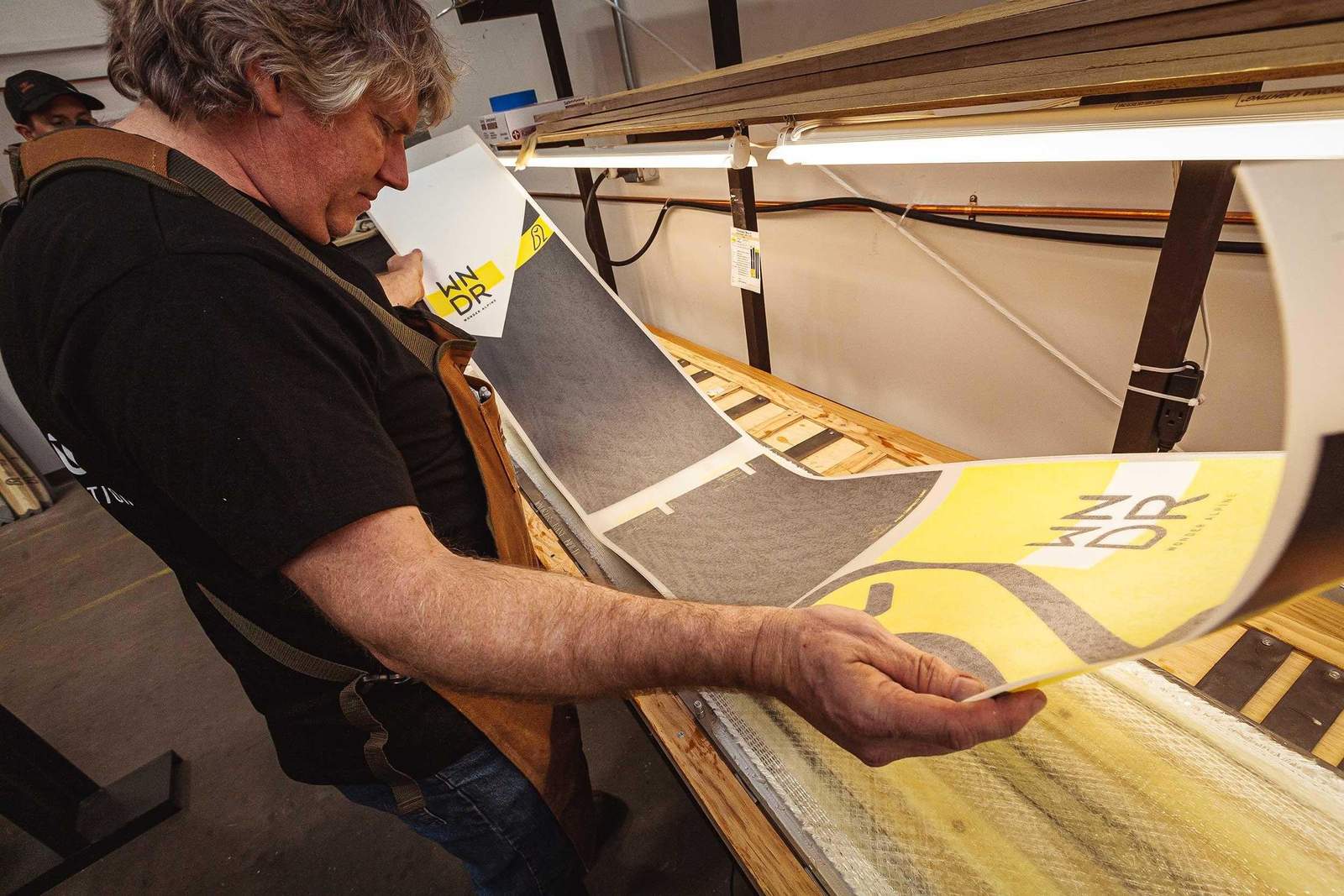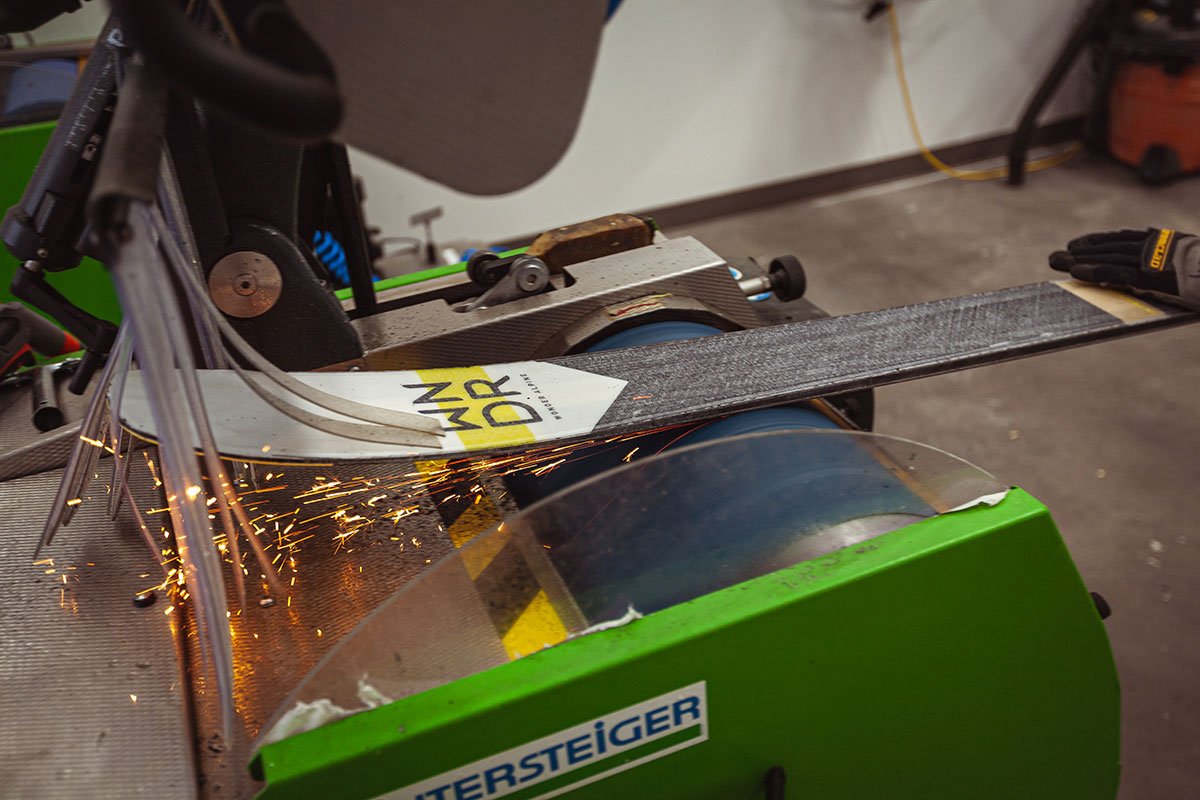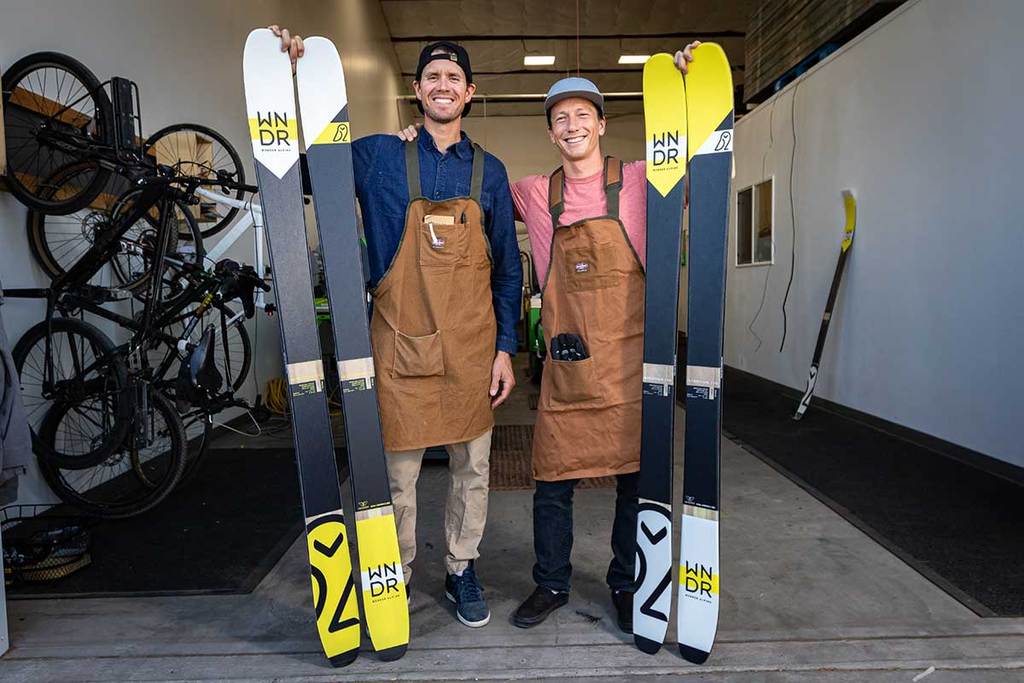
Matt Sterbenz, the founder of 4FRNT skis and WNDR Alpine, has broken new ground in the world of ski manufacturing. Taking an innovative and sustainable approach, Sterbenz, who was creatively inspired by a plant-based composite focused company known as Checkerspot, put forth the idea of building skis constructed partially from algae. Contrary to the more traditionally used materials, such as wood and fiberglass, utilizing such a sustainably focused product will significantly redefine the industry.
After running 4FRNT skis for 16 years, Sterbenz redirected his attention towards starting a new company called WNDR Alpine. His overarching goal was to shed light on the benefits, both environmentally and performance-wise, of utilizing biocomposites over traditional plastics when constructing a ski’s core. The Intention 110, released in July 2019, became the first pair of skis built with an algae-based core.

The technology used to manufacture the core of the Intention 110s involves growing algae in fermentation tanks. The end result of this process is new types of oils that not only act as building blocks but can be utilized by chemists to harvest and turn into a polyurethane composite. While the core remains the only part of the ski using this material, the hope is to eventually construct the entire ski using the biomaterial.
As far as how the ski performs, despite the reduction in weight, the strength of the ski has not been compromised. Light in weight but powerful and playful, the Intention 110 is attracting backcountry skiers. The ski is as stiff as a traditionally built ski but weighs in at 250 grams less than its contenders. This increase in performance is believed to be a result of the algae composite.

WNDR Alpine is setting an impressionable example for companies in the outdoor industry. As climate change continues to threaten the many places skiers, climbers, and enthusiasts alike passionately explore, a shift towards a more sustainable approach is crucial. Aside from WNDR, companies, such as MountainFlow Eco-wax and PrimaLoft, are experimenting with alternative materials.
Focusing on ski and snowboard wax, MountainFlow Eco-wax is using plant-based materials that won’t leave behind petroleum or fluorocarbon in the snow. Primaloft designed the world’s first biodegradable synthetic insulation, Bio, in order to reduce microplastic pollution. While these efforts are only a piece of a multifaceted process, CEO of the Sustainable Apparel Coalition, Jason Kibbey, states “materials are a huge part of a company’s impact, both the raw materials that you’re using and how those materials are produced”. Every intentional step taken in the right direction to protect our future will have a massive impact.